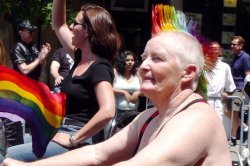 I saw this question the other day, and started thinking about what it meant for me, especially in terms of fighting for spocial justice.
I saw this question the other day, and started thinking about what it meant for me, especially in terms of fighting for spocial justice.
If I didn't care what people thought, I would:
- shower less frequently, to save resources
- worry less about my weight
- buy fewer new clothes
- use fewer (or no) beauty products
- dance in public
- roll down grassy hills in public
- wear only comfy shoes
- push gender appearance norms more
- have the tattoo that I've wanted for 15 years
- wear a more noticeable nosering, and fairy wings
- giggle more
- speak my mind more often, and more loudly
- more consistently confront people who say racist, sexist, classist, etc. things
- more consistently confront people who don't think their personal choices (driving, buying sweatshop-made products, choosing to live in neighborhoods that have no poor people and don't have sidewalks) have a global impact
You may be noticing a trend: This blogger, were I to become ...unfiltered by caring what people think...would spend a lot of time outside of social mores. And specifically, around issues of changing the world, well...would have few friends and might even generally be an unpleasant & judgmental person to be around.
In fact, the more I thought about it the more I realized that the person that I would be without paying attention to other people's opinions is very similar to the rude, pushy, fiery, ungroomed, principled, judgemental, out and proud, passionate, focused, free, secure, confident, obnoxious, powerful person that I was in college.

Now that made me think...what has changed since then? Why do I pay attention to my looks now? Why do I moderate my opinions, cover them when necessary, not call out every injustice that I see? Why do I worry what people think now, when I didn't before?
And am I happy with the results?
Well...Y'all who know me already know that I toned down my rhetoric because it wasn't working. Surprise: people don't seem to like communications without social niceties - or to put it another way, paying attention to what people think of my communications style is the tool that I have learned to hopefully have my message actually heard. And to not get fired from jobs.
In fact, this is the PhD thesis that I want to write: when people feel attacked, they will defend themselves and not be open to new ideas.
Humility is a huge part of this. What makes me think I have the right to tell other people what to do at all? It's a slippery slope. My convictions tell me to stay on that slope, and continually push the people I love to reconsider their driving, shopping, eating, etc. habits, but...to push gently, and with open ears, and accept it when people tell me they can't be pushed any farther right now. As much as I want to make the world a more progressive and secure and unpolluted place, I can't tell anyone else what to do. We all find our own paths.
I've learned how to pay attention to what people think, in order to gauge how best to reach them, and share my values, in hopes of perpetuating those values. I think that's a good thing, even if it does come at a price.
But some of these changes I feel more mixed about.
I've adopted many of the grooming rituals of "normal" people because the way I look affects how powerful I am in this society. (There's a fabulous and nasty cognitive dissonance when the grooming rituals I use to get power feel demeaning to me, such as shaving my legs!) This power is, of course, limited: I only have access to the powers that are granted to conventionally dressed white women in our society. It's not really the kind of power I want. But it's the kind I am currently choosing, at least sometimes. I'm showing by my grooming habits that I prefer to have the meager power I can get as a conventionally groomed female then the even more tenuous power I would have as a female who dresses outside gender and class boundaries.
I personally would rather not be dressing only in women's clothes, for example, or using so many gallons of water every day, but the alternative is to feel that other people will judge me for being grungy or "ugly" or having bed hair, instead of listening to what I have to say.
Some days I feel resilient enough to put my water use, my nosering size, my gender identity, my fairy wing attire before my social comfort. Other days I don't.
I wish I could completely stop caring what people think. It's a tremendous amount of work for me to conform to social norms I don't value or which hurt me, and to keep my mouth shut when I want to speak out. It's scary when I realize how much I've internalized that I don't want.
Is some degree of conforming the best path for me to keep my job, keep my friends, and effect social change? It's an interesting question.
I do think that paying attention to how people want to receive messages of reform is crucial to actually communicating those messages effectively. It takes lots of patience and skill (which I don't necessarily claim to have!) but perhaps this is the most effective way for me to influence this world. Not many people like to be yelled at.
But have I gone too far in the direction of conforming? Is it time for me to give up some of my perceived social power and recreate the inner power of trusting in myself and caring a little less what other people think?
hmmm...
In the end - when I no longer need to keep social power - I hope to be as hairy and smelly and in-your-face as I ever was. And maybe that will be a good thing.
But this not rolling down a grassy hill thing? This I plan to change, effective immediately.
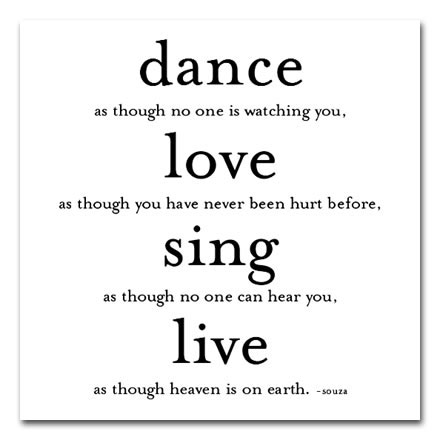
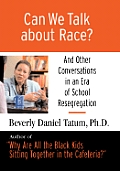
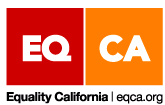 In other disturbing news...
In other disturbing news... 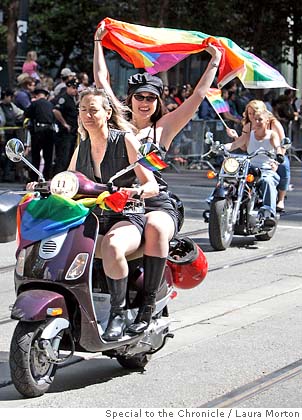
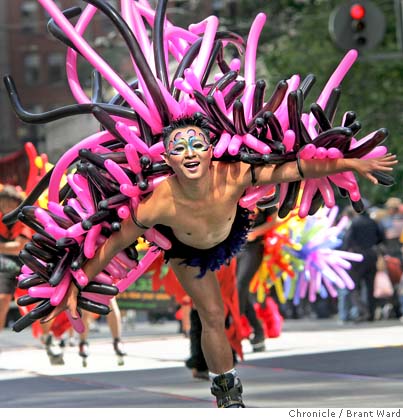



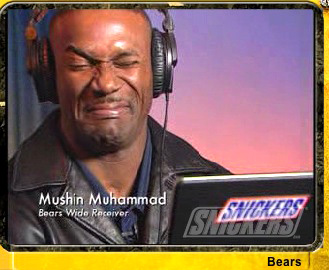
 Excellent
Excellent 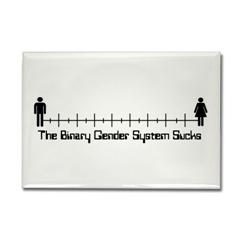
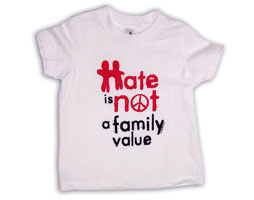
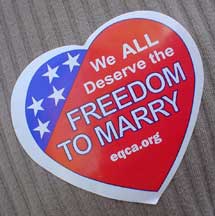 Hooray for new data that makes our case that much more powerful!
Hooray for new data that makes our case that much more powerful!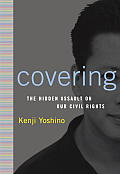 I first discovered Mr. Yoshino, a professor at Yale Law School, when I read about his book:
I first discovered Mr. Yoshino, a professor at Yale Law School, when I read about his book:  Found a great essay by
Found a great essay by 

 I have so many ideas I want to blog about, and no time to do it. Rather than let the site languish without any changes, here are snippets of things that have caught my heart over the past week:
I have so many ideas I want to blog about, and no time to do it. Rather than let the site languish without any changes, here are snippets of things that have caught my heart over the past week: ...from NPR to
...from NPR to 
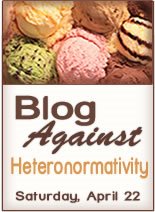 So what will I blog about? Hmmmm...heteronormativity...well, how about kids?
So what will I blog about? Hmmmm...heteronormativity...well, how about kids?

